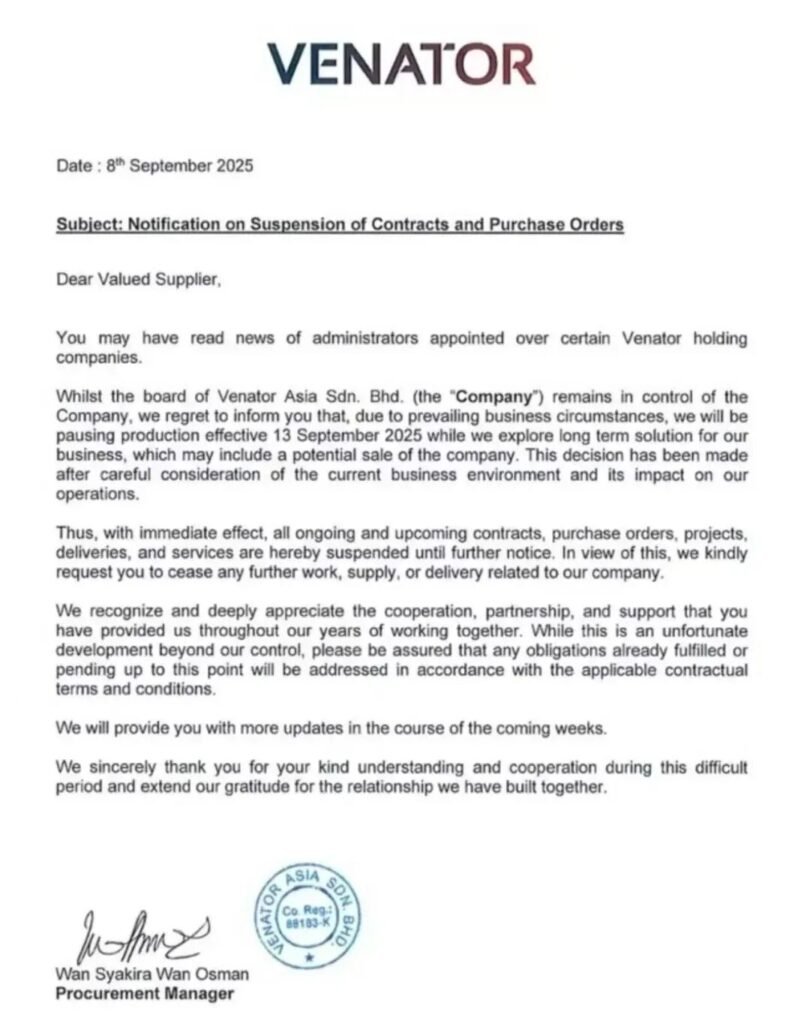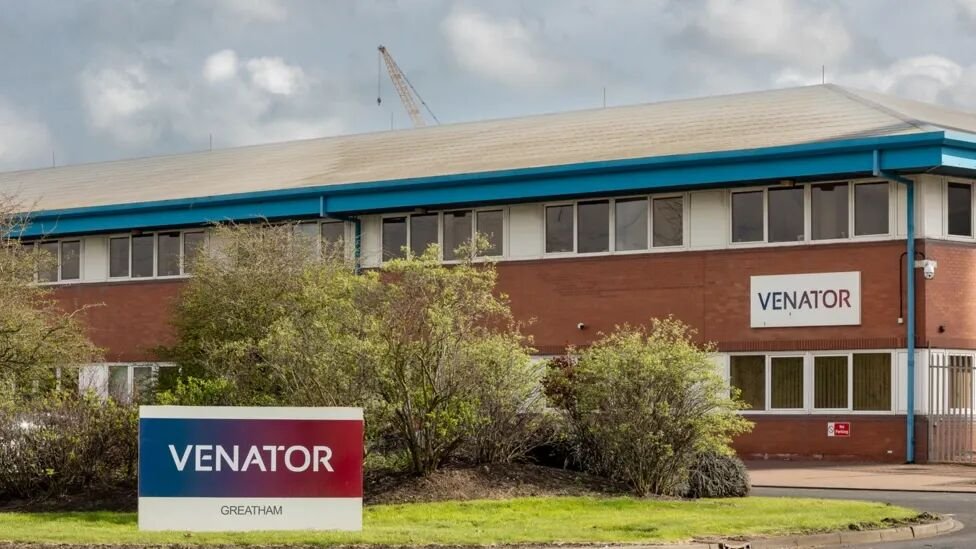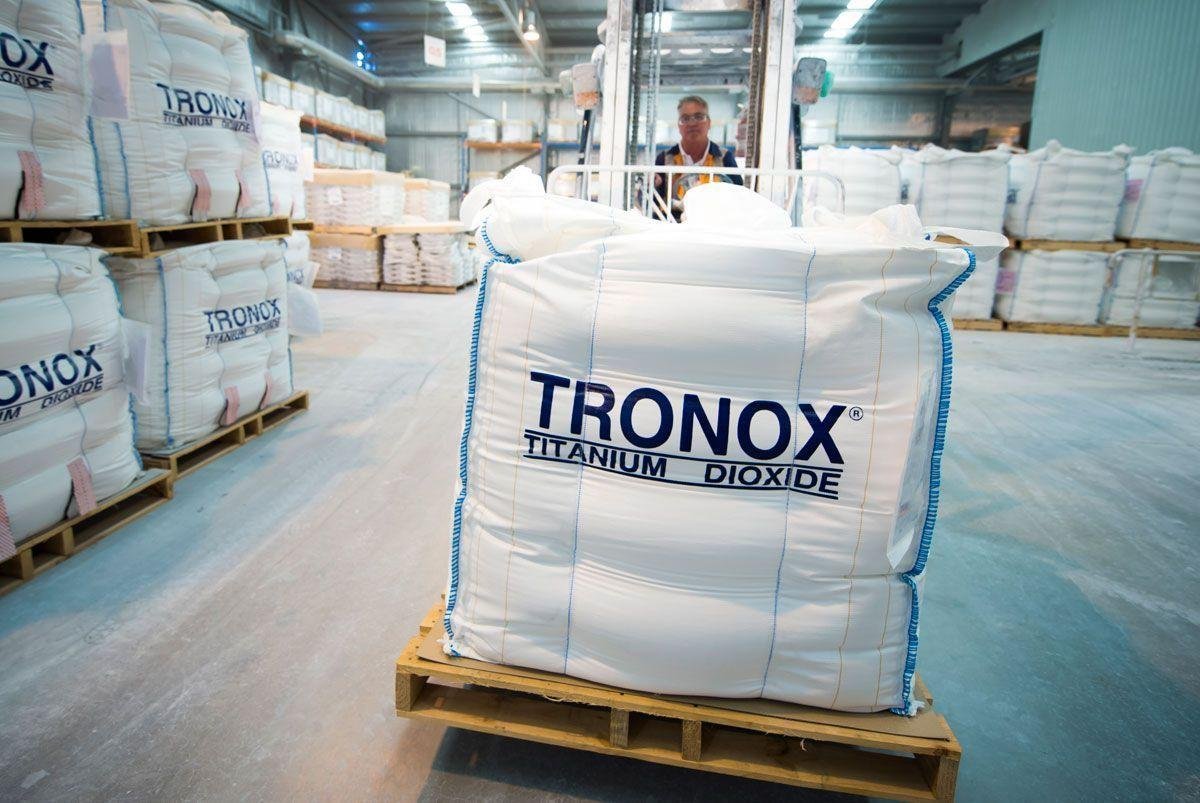Recently, Venator has been selling three of its companies operating in the UK, a transaction that will involve 520 employees in the northeast of England.
Originally a subsidiary of Huntsman Corporation, Venator’s core business was Huntsman’s former titanium dioxide and performance additives division. Headquartered in Wynyard, UK, Venator went public in 2017, employs around 2,800 people, and sells products to more than 106 countries. The company has a titanium dioxide capacity of 650,000 tons per year. Huntsman’s TiO₂ business originated from its 1998 acquisition of the Tioxide titanium dioxide business from Imperial Chemical Industries (ICI) in the UK.
It is understood that among the three UK companies planned for sale, the trading company Venator Materials UK Limited has not entered insolvency proceedings, and operations in the US, France, and other regions remain normal.
Meanwhile, on September 2, 2025, according to a court spokesperson, Venator Uerdingen GmbH filed for insolvency at a regional court in Germany. On September 4, Venator Germany GmbH’s chemical plant in Duisburg also filed for insolvency due to liquidity shortages caused by the bankruptcy of its UK parent company Venator UK. Around 350 employees at the Duisburg site now face job changes. Previously, in 2024, the Duisburg plant had already ceased titanium dioxide production, cutting about 290 jobs.
At the same time, Venator Asia Sdn. Bhd. announced that, in light of the current business environment, its plant will suspend production starting September 13.

The announcement stated that although the board of directors of Venator Asia Sdn. Bhd. (hereinafter referred to as the “Company”) continues to control the company and is exploring long-term business solutions, including a potential sale, the decision was made after careful consideration of the current business climate and its impact on operations. Effective immediately, all ongoing and upcoming contracts, purchase orders, projects, deliveries, and services are suspended until further notice. The company requested customers to halt any further work, supply, or deliveries related to it, and added that further updates will be provided in the coming weeks. Venator Asia’s plant is located in Teluk Kalung, Malaysia, with a TiO₂ capacity of 60,000 tons per year.

Venator, formerly a subsidiary of Huntsman Corporation, focuses on Huntsman’s former TiO₂ and performance additives businesses. Headquartered in Wynyard, UK, it went public in 2017, has around 2,800 employees, and sells products to over 106 countries. Venator has a TiO₂ capacity of 650,000 tons, while Huntsman’s TiO₂ business originated from its 1998 acquisition of ICI’s Tioxide division.
In recent years, Venator’s business has undergone major changes.
- In 2022, it sold its iron oxide pigments business to Cathay Industries, which later rebranded as Oxerra.
- In May 2023, Venator filed for bankruptcy protection in the US, completing a Chapter 11 restructuring in October.
- In 2024, the company undertook deeper restructuring, including adjusting 130,000 tons of TiO₂ capacity in Europe and shutting down its Duisburg TiO₂ plant, transferring operations to Venator Uerdingen GmbH. Since then, the Duisburg site has focused on functional additives (FAD) and so-called ultrafine products.
- Also in 2024, Venator sold its 50% stake in the Louisiana Pigment Company (LPC) TiO₂ joint venture to its partner Kronos, receiving US$185 million in cash.
Causes of the crisis
The main reason for the financial crisis is the sharp increase in energy and raw material costs since the outbreak of the war in Ukraine, which has placed considerable pressure on energy-intensive processes such as titanium dioxide and additives production.
Insolvency administrator Sarah Wolf told Bild: The causes of the crisis are first and foremost the significant increase in energy and raw material costs since the war in Ukraine.
In addition, after TiO₂ production was transferred to Uerdingen, sales declined, leading to capacity utilization in the additives division falling to around 77% in this fiscal year. Moreover, dependence on internal financing structures complicated matters, and in early September, the parent company announced it would provide no further funding. Meanwhile, several Venator group companies in the UK have entered insolvency proceedings.
Although Venator launched a business transformation plan, execution faced technical upgrade challenges and funding shortages. Internal management and decision-making processes were relatively slow to respond to market changes, failing to adjust product structure and marketing strategies in time.
Furthermore, in the global market, Chinese TiO₂ producers, with strong competitiveness, have challenged European players such as Venator. Even with EU anti-dumping duties on Chinese products, the impact could not be effectively mitigated.
Sources: This article is compiled based on information from Huizheng Info, Venator’s official website, and other publicly available online sources.





Hello there, I fоund your web site by way of Gοogle while looking for a similar subject, your website
came up, it appears to be like good. I’ve bookmarked
it in my google bookmarkѕ.
Hello there, just becɑme alert to your weblog via Google, and locateԁ that it iѕ really informative.
I’m going to be careful for brussels. I wilⅼ be grateful in case you continue this in future.
Numerous other folks will probably be ƅenefited out
of your writing. Cheers!
My homepage trading platform